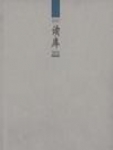Chapter 1 Who is singing his own song over there? Thirty years of Taiwan's modern folk song movement
Because of its distorted appearance, the pop music industry has lost the respect of intellectuals and even the general public. Taiwan's modern pop music has lost more than it gained in the past 30 years. The tomorrow in the song 15 years ago is obviously not better.
I look forward to this being an age of introspection.
——Li Zongsheng, a senior music producer in Taiwan
The 1970s was the most turbulent era in Taiwanese society, and it was also an era of development and reflection on Taiwan's literary and artistic trends.
Taiwan's economy has just started to take off, but it has been losing ground on the international stage. It was forced to withdraw from the United Nations, the movement to protect the Diaoyu Islands, Nixon's visit to China, and successively severed diplomatic relations with more than 30 countries including the United States and Japan, making Taiwan's nationalist movement unprecedentedly fierce.
The trend of thought in literature and art always closely follows the trend of thought in society.The strong sense of loss prompted the Taiwanese to strive to create a "thing of their own" culturally. In terms of literature, the debate between modern poetry and rural literature took place. The backbone of the camp.The awakening of national consciousness is manifested in popular music, which is the famous Taiwanese modern folk song movement.Although some folk singers have stated that their singing and creation of Chinese songs is not directly related to the wave of nationalism after Baodiao, but under the general environment, the development of folk songs cannot exist independently of history.
The "Sing Your Own Songs" movement initiated by college students and intellectuals is also known as the folk song revival movement. Its appearance marks the beginning of Taiwan's own pop music.
From the mid-1970s to the end of the early 1980s, Taiwan’s modern folk song movement developed three main lines: the first was the “Modern Chinese Folk Songs” in 1975, represented by Yang Xian, Zhao Shuhai, Han Zhenghao, and Wu Chuchu. The development of the first main line can continue to the period of campus songs; the second is "Tanjiang-"Xia Tide"" represented by Li Shuangze, Hu Defu, and Yang Zujun, which began in 1976. Hu Defu of the purpose is still active on the battlefield; the third is Li Jianfu, Jin Tiezhang, Huang Dacheng, Shi Xiaorong, Su Lai, Liang Hongzhi, Cai Qin, Qi Yu, Wang Hailing, Bao Meisheng, Tai Zhaomei, Shi Biwu, etc. "Campus songs", this main line was gradually incorporated into the track of popular music, so that commercial intervention eventually became the reason for the end of the folk song movement.
Regarding what is a folk song, the "Modern Chinese Dictionary" explains: Folk songs refer to poems or songs that are passed down orally among the people, and the names of the authors are mostly unknown.This interpretation of folk songs is consistent with the rationale of the traditional folk song theorists of Taiwan’s academic schools to criticize the folk song movement—folk songs are not created by a single person, they must be produced by the people, and once they are spread, they will evolve into collective creation, and It must have been passed on orally for a considerable number of years before it was written down.
Looking back now, "modern folk songs" has become a fixed usage.Whether it is a folk song in the traditional sense or whether it is modern is not so important anymore.The important thing is that the young people at that time did "have their own songs to sing".Singing one’s own songs does not seem like a luxury requirement on the surface, but in that era, there were no works that could truly represent the voices of young people—”The young people only repeated the inexplicable story of the older generation of provincials fleeing from the mainland. Fear, it is difficult to find a way out of the desire and vitality of life." The TV is stopped after ten o'clock every night, and all young people can see on TV, except for the "decadent voice" that the authorities have repeatedly criticized, is the Qiong Yao style. A life-and-death love tragedy.Lucky young people may also read "Wen Xing" magazine, local literature, photocopied novels in the 1930s, or have plastic records copied from American radio stations stationed in Taiwan. However, the spiritual life of most young people is poor. asphyxia.
The modern folk song movement has rewritten the lives of these students to some extent. Most students can afford a guitar of 300 to 500 NT dollars, and the slogan "sing your own song" has become popular.It was these young people who picked up the guitar in their hands, wrote their own songs, and sang their own songs until they sang for an era.
This era should not be forgotten.
Notes:
①It refers to "Tomorrow Will Be Better" created by Luo Dayou in 1985. Influenced by the collective singing of "One Family" by well-known European and American singers in 1984, 60 singers were invited to record it together. In Taiwan's general election at the end of 1985, the Kuomintang took advantage of the popularity of "Tomorrow Will Be Better" to spread the banner of "A Better Tomorrow". Luo Dayou was once unjustly ridiculed as a propaganda tool of the Kuomintang.
② It is named after Yang Xian's solo album "Modern Chinese Folk Songs Collection".

